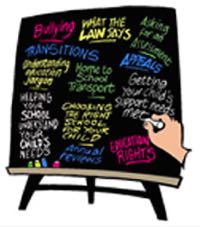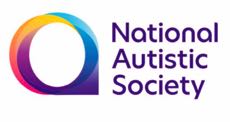National News
Views expressed on this website are not necessarily those of The National Autistic Society and reference to specific services or approaches to autism does not
imply endorsement, nor does the absence of any services or approaches imply that NAS Richmond does not support them.
Images in this website credited to Allan Sears, Alison Sears, and the Microsoft Office plus Bing Clip Art image libraries.
All material © The National Autistic Society (Richmond Branch) 2021 and cannot be reproduced without permission.
NAS Data Protection and Privacy Policy. At The National Autistic Society we are committed to protecting your privacy. Our policy has been written in accordance with the Data Protection Act 1998. View the NAS Data Protection and Privacy Policy: https://www.autism.org.uk/get-involved/about-us/website/data.aspx
Website Terms and conditions of use. By using an NAS branch website you agree to be bound by the following Terms and Conditions, which take effect immediately on your first use of any NAS website. View the NAS Terms and Conditions of use for NAS websites: https://www.autism.org.uk/branchtermsofuse
The National Autistic Society HQ. 393 City Road, London EC1V 1NG Tel: 020 7833 2299 Email: nas@nas.org.uk Website: www.autism.org.uk
NAS SCHOOL EXCLUSION HELPLINE FOR PARENTS
The School Exclusions Helpline offers advice and information to parents of autistic children and young people on all aspects of school exclusion in England. This includes advice on informal (illegal) exclusions; fixed period and permanent exclusions; how to challenge your child's exclusion and what you can do if you are concerned that your child is at risk of exclusion.
Autistic children are particularly vulnerable to being excluded from school. Sometimes behaviour associated with this hidden disability can be confused with disobedience because of a lack of awareness of the condition by both pupils and adults in school. Sometimes a pupil with autism, trying to cope with the unstructured social aspects of school life, can feel overwhelmed and become anxious, stressed and aggressive, resulting in a meltdown.
Headteachers may feel that exclusion is the only solution in order to maintain the safety and well-being of other pupils. Indeed it may be the case that a mainstream school is not the most appropriate setting for a particular child. However, disruptive behaviour can be an indication of unmet needs and schools have a duty to make reasonable adjustments to policies and practices to ensure that autistic pupils also feel safe, confident and able to experience success.
How to use the NAS School Exclusions Service:
Visit the NAS Contact the Schools Exclusion Helpline webpage and complete the online enquiry form so that an Exclusions Adviser can arrange to call you back to discuss your query in detail.
You can find more details about the NAS School Exclusions Service (England) here: https://www.autism.org.uk/what-we-do/help-and-support/school-exclusion-service

NEWS AND INFORMATION FROM NAS HQ
NAS: HELP AND SUPPORT
Here is some information about the help and support services being offered:
Autism inpatient mental health casework service (England)
The service offers advice and support to autistic people and the families of autistic people in England who have been detained in a mental health hospital, or are at imminent risk of detention or re-detention. More details can be found on the NAS Autism inpatient mental health casework service webpage.
Parent to parent emotional support helpline
This is a confidential telephone service providing emotional support to parents and carers of autistic adults or children. The service is provided by trained parent volunteers who are all parents of an autistic adult or child. For further details, visit the Parent to parent emotional support webpage. This service is temporarily closed to
new parents.
Education Tribunal support helpline
The education tribunal support helpline/case work service can provide advice and support to families who have a right of appeal against a decision about a child or young person’s educational needs. For more information about this helpline, visit the
Education Tribunal support helpline webpage.
Transition support helpline
The transition support helpline/case work service provides advice and support to young autistic people and their families on making the transition from school, further or higher education to adult life. For more information about this helpline, visit the Transition support helpline webpage.
Education Rights helpline
The education rights helpline and case work service can provide general information about educational rights and entitlements, as well as offering advice on specific topics such as getting extra help in school, assessments, education plans, reviews or school transport. To find out more about what this helpline can offer, please visit the Education Rights helpline webpage.
School Exclusion helpline
More details about this service are given below.

